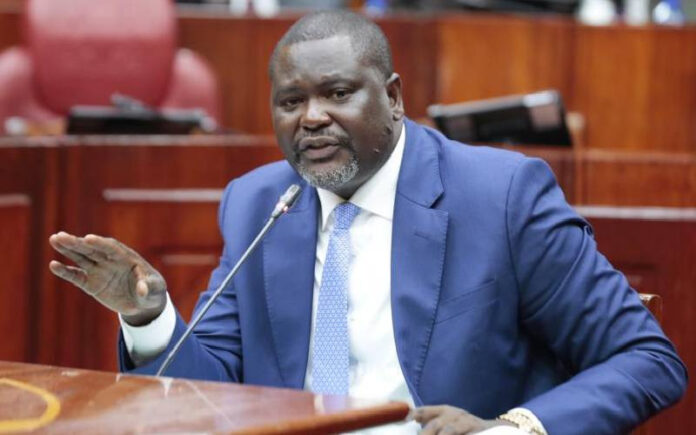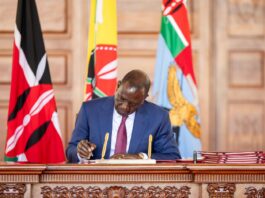Public Service Cabinet Secretary Geoffrey Ruku has raised concerns over the low pay of government workers, citing limited revenue and an overstretched wage bill as major barriers to improving salaries and expanding the workforce.
Speaking during an interview with NTV on Wednesday, Ruku noted that despite Kenya having close to 1 million public servants serving a population of over 55 million, many of them earn significantly less than their private sector counterparts.
“Most public servants are not paid enough, compared to their peers in the private sector,” he said, emphasizing the need for increased government revenue to support fair remuneration and sustain the public service.
Ruku stressed that the public sector plays a vital role in creating a conducive environment for investment and service delivery. However, the high wage bill, he said, presents a major constraint. “The challenge is with the 1 million, the wage bill is already high so that means we need to think about how to raise our revenues,” he added.
The Cabinet Secretary also suggested that Kenya may need to expand its public service workforce to about 3 million to adequately meet national development and service delivery demands.
Recent data from the Salaries and Remuneration Commission (SRC) supports Ruku’s concerns. According to the SRC’s second quarter bulletin for the 2024/25 financial year, only six counties, Nakuru, Kwale, Busia, Tana River, Narok, and Kilifi, comply with the Public Finance Management Act’s recommended wage bill-to-revenue ratio of not more than 35%.
Nationally, the Teachers Service Commission (TSC) accounts for the largest share of the wage bill at 33.8%, followed by the national government at 27.12%. By contrast, State corporations and Consolidated Fund Services (CFS) contribute significantly less, at 4.7% and 0.31%, respectively.
CS Ruku warned that without urgent fiscal reforms to grow state revenue, both fair compensation and the expansion of the civil service will remain unachievable goals.
Written By Rodney Mbua










